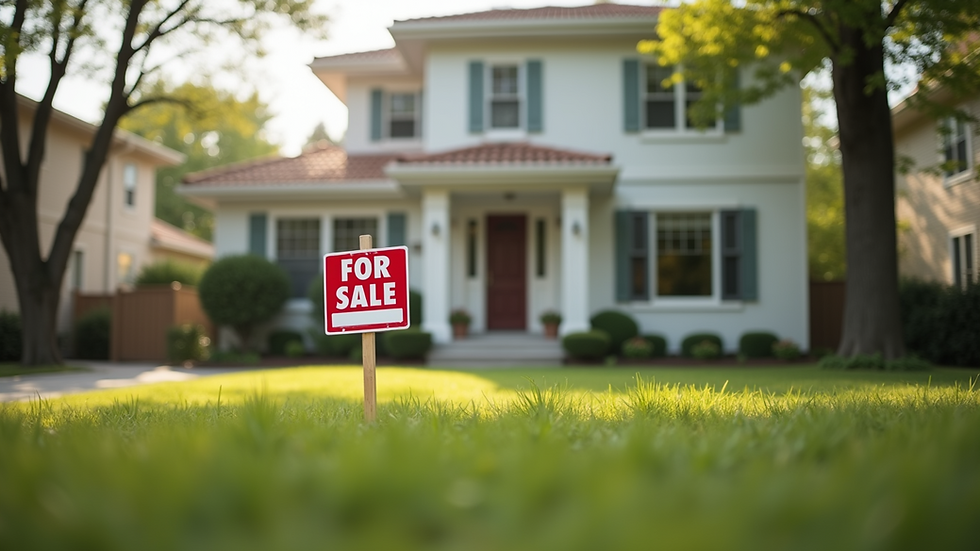Government Shutdown and Economic Slowdown How Chapter 13 Bankruptcy Can Save Your Home from Foreclosure
- Mead Law Offices
- Oct 25, 2025
- 3 min read
In the face of a government shutdown and a slowing economy, many Americans are feeling the weight of financial uncertainty. With job security diminishing and household expenses rising, the risk of foreclosure is increasing for homeowners across the country. Yet, there is a lifeline available for those struggling to keep their homes: Chapter 13 bankruptcy.
Understanding the Government Shutdown and Economic Slowdown
A government shutdown occurs when Congress fails to pass funding legislation, and it can have significant implications for the economy. Federal employees might be furloughed, resulting in a loss of income for thousands. For example, during the 2018-2019 shutdown, nearly 800,000 federal workers went without pay for 35 days. Such disruptions can shake consumer confidence and ripple through various sectors of the economy.
At the same time, a slowing economy often leads to rising unemployment. According to the Bureau of Labor Statistics, the unemployment rate can rise from 3.5% to 5.4% or more during economic downturns. As job security declines, many individuals face reduced hours or lay-offs, making it increasingly challenging to keep up with mortgage payments. This situation can create a troubling cycle of debt and financial instability that puts homes at risk.
What is Chapter 13 Bankruptcy?
Chapter 13 bankruptcy is a legal process designed for individuals to reorganize their debts. Unlike Chapter 7 bankruptcy, which requires liquidating assets to pay creditors, Chapter 13 allows homeowners to keep their property while creating a manageable repayment plan over three to five years. This is especially important for those on the brink of foreclosure, as it offers a pathway to catch up on missed mortgage payments and protect one's home.
For example, if you owe $15,000 in back mortgage payments, Chapter 13 allows you to spread that amount over your repayment plan duration. Essentially, this makes it easier to manage large debts without losing your home.

How Chapter 13 Bankruptcy Can Stop Foreclosure
Filing for Chapter 13 bankruptcy triggers an automatic stay that halts all foreclosure actions. This means lenders cannot proceed with foreclosure while the bankruptcy case is active. This breathing space allows homeowners to formulate a repayment plan tailored to their financial situation.
In a typical Chapter 13 repayment plan, you can propose to repay missed mortgage payments gradually while keeping up with regular monthly payments. Studies show that around 60% to 75% of Chapter 13 filers successfully complete their plans, regaining control over their finances and preserving their homes. Additionally, Chapter 13 can address other debts, such as credit cards and medical expenses, offering a well-rounded solution to financial challenges.
The Benefits of Filing for Chapter 13 Bankruptcy
Filing for Chapter 13 bankruptcy presents several significant benefits for homeowners facing foreclosure. First, it provides immediate relief from the threat of foreclosure. Homeowners can focus on establishing a sustainable repayment plan without the constant fear of losing their homes.
Furthermore, Chapter 13 can facilitate the gradual rebuilding of credit. By making consistent payments according to the repayment plan, individuals show their dedication to responsibly managing their debts. Over time, this can improve credit scores. According to a study by the American Bankruptcy Institute, individuals who complete their Chapter 13 plans see their credit scores rise by an average of 100 points.
In addition, Chapter 13 allows homeowners to address multiple debts simultaneously, potentially improving their overall financial situation.
Taking Action to Secure Your Home
In uncertain times marked by a government shutdown and a slowing economy, many homeowners grapple with the challenge of rising financial pressures. However, Chapter 13 bankruptcy offers an important option to halt foreclosure and secure one’s home. By understanding its advantages and how it works, you can take proactive steps to secure your financial future. If you're facing challenges in managing your finances, consider reaching out to a bankruptcy attorney. They can help guide you through your options and determine the best strategy for your unique situation.




Comments